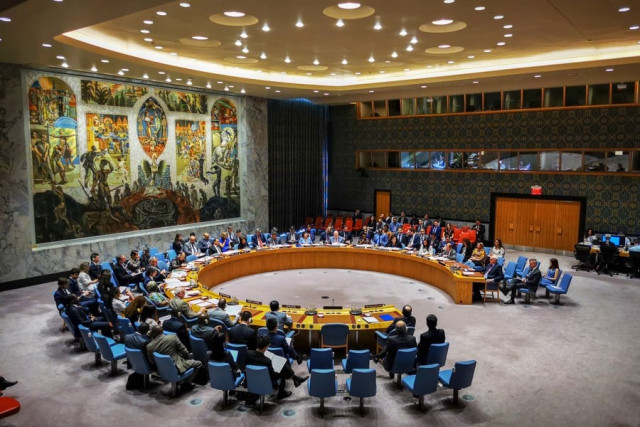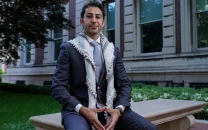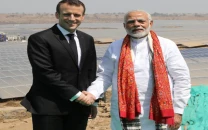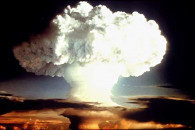Iran starts limiting UN inspections until US lifts sanctions
Praising Grossi's 11th-hour diplomacy, Washington expressed its "concern that Iran is moving in the wrong direction

Iran said Tuesday it had started to restrict some site inspections by the UN nuclear watchdog in response to the US refusal so far to lift sanctions imposed by former president Donald Trump.
The move prompted Britain, France and Germany, the three European nations party to the 2015 nuclear deal, to say they "deeply regret" the decision, and that they were "united in underlining the dangerous nature of this decision".
"It will significantly constrain the (International Atomic Energy Agency's) access to sites" and to safeguarding information, they said.
On Tuesday the IAEA's Director General Rafael Grossi told a seminar that the interim three-month deal agreed at talks Sunday in Tehran was "far from an ideal situation".
But, he added, it "allows us to continue to monitor and to register all the key activities... so that at the end of it we can recover all this information.
"This will facilitate... time for the indispensable diplomacy that will be deployed in the next few days," he said -- referring to talks between Tehran and major powers aimed at restoring the 2015 deal known as the JCPOA.
Washington's concerns
While praising Grossi's 11th-hour diplomacy, Washington expressed its "concern that Iran is moving in the wrong direction.
"It is moving further away from its nuclear constraints," State Department spokesman Ned Price told reporters.
The changes to the IAEA's monitoring and inspection regime, ordered by Iran's conservative-dominated parliament last year, are the latest in a series of retaliatory measures Iran has adopted in response to Trump's 2018 withdrawal from the JCPOA.
Recordings from monitoring equipment the IAEA installed at Iran's nuclear sites to verify its compliance will now be withheld by Tehran until US President Joe Biden has lifted the crippling sanctions imposed by Trump.
So-called "voluntary transparency measures", including snap inspections of sites not under regular monitoring -- are also suspended.
However, a Vienna-based diplomat stressed that snap inspections to declared nuclear sites could be conducted even without those measures, so the impact on access would be "negligible".
Data deadline
Iran's Foreign Minister Mohammad Javad Zarif told the official IRNA news agency that Tuesday's changes would have no major immediate impact on the work of the IAEA inspectors.
Russia says it is ready to cut EU ties if hit with painful sanctions
"The crux of this deal is that the data recorded on our nuclear programme... will be stored and not handed over to the IAEA," Iran's top diplomat said.
The data "had never been supplied to the IAEA in real time but had been handed over on a daily or weekly basis," he said.
If talks on a US return to the nuclear deal drag on, that would change, however.
The Iranian Atomic Energy Organisation has said that under the new law, if there is still no lifting of US sanctions after three months, it will start erasing the recordings.
Biden has signalled readiness to revive the nuclear deal but insists Iran first return to all its nuclear commitments. His administration has said it is willing to join EU-led talks with Iran in search of a compromise.
'No backing down'
Iran's supreme leader said Monday that the Islamic republic could boost uranium enrichment to 60 percent if needed.
The IAEA confirmed in a report issued Tuesday that Iran was now enriching uranium up to 20 percent and that its overall enriched uranium stockpile was more than 14 times the limit stipulated in the JCPOA.
"We will act to the point that is needed and the country requires," Ayatollah Ali Khamenei said, adding that "we could bring enrichment to 60 percent" for nuclear propellants and other purposes.
That would far surpass the 3.67 percent limit Iran had accepted under the 2015 deal, but still be short of the 90 percent or so required for an atomic bomb.
"The Islamic republic will not back down on the nuclear issue and will strongly continue down the path of what the country requires for today and tomorrow," Khamenei said in remarks posted on his official website.
He stressed the United States was the party that had left the deal -- and that Iran's suspension of its commitments was "still reversible" if Washington returned to its own commitments.
In a separate report also issued Tuesday, the IAEA said it was "deeply concerned" by the possible presence of nuclear material at an undeclared site, previously identified as being in the Turquzabad district of Tehran.
Sources say there is no indication the site has been used for processing uranium, but that it could have been used for storing it as late as the end of 2018.



















COMMENTS
Comments are moderated and generally will be posted if they are on-topic and not abusive.
For more information, please see our Comments FAQ